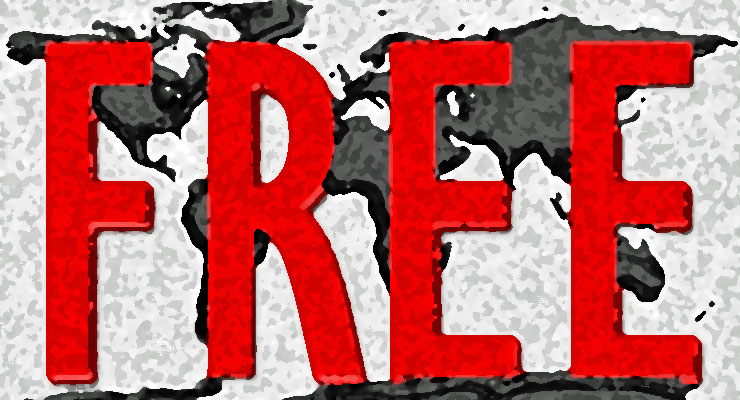
Everyone has power. Everyone. And, I don’t believe that power is a bad thing.
The Sources of Political Power
Author: Dr Alusine Melvin Moseray Kanu DA
Also see Democracy Chronicles World Democracy page and our dictatorships archive as well.
Everyone has power. Everyone. And, I don’t believe that power is a bad thing. The issue becomes what kind of power a person has and how someone uses that power. Power is often defined as the capacity to influence others’ behavior, to get others to do what challengers want, rather than what the initial parties themselves want. It is, however, important to recognize that change can be within rather than without, or that it may be a combination of the two.
Leadership behavior and membership behavior are synonymous with behavior that contributes to group performance and takes into account the use of power within the group. Taking into account the power of the group involves the leader’s participating in a social purpose partnership in which the leader works with multiple stakeholders in the group to create a common goal or purpose. Khory (2011) cites that French and Raven, present six forms of power in their relationships with others.
Reward
Power based on the ability to reward for compliance
Coercive
Power based on the ability to punish for noncompliance
Referent
Power based on liking, admiring, and being attracted to the leader
Legitimate
Power based on rightfully granted status or position
Expert
Power based on knowledge, training, experience, and/or expertise
Informational
Power based on access to valued information
Foucault challenges the idea that power is wielded by people or groups by way of ‘episodic’ or ‘sovereign’ acts of domination or coercion, seeing it instead as dispersed and pervasive. ‘Power is everywhere’ and ‘comes from everywhere’ so in this sense is neither an agency nor a structure (Foucault 1991). Instead it is a kind of ‘metapower’ or ‘regime of truth’ that pervades society, and which is in constant flux and negotiation.
Foucault uses the term ‘power/knowledge’ to signify that power is constituted through accepted forms of knowledge, scientific understanding and ‘truth’: Truth is a thing of this world: it is produced only by virtue of multiple forms of constraint. And it induces regular effects of power. Each society has its regime of truth, its “general politics” of truth: that is, the types of discourse which it accepts and makes function as true; the mechanisms and instances which enable one to distinguish true and false statements, the means by which each is sanctioned; the techniques and procedures accorded value in the acquisition of truth; the status of those who are charged with saying what counts as true’ (Foucault, 1991).
Power defines fields of possibility. It facilitates and constrains social action. Its mechanisms consist in laws, rules, norms, customs, social identities, and standards that constrain and enable inter- and intra-subjective action… Freedom enables actors to participate effectively in shaping the boundaries that define for them the field of what is possible’ (1998: 12) Rather than worrying about who has or does not have power, Hayward proposes that we focus on ‘whether the social boundaries defining key practices and institutions produce entrenched differences in the field of what is possible’ (1998: 20).
She argues for critical examination not of actors and their actions, but of the unquestioned social norms which underpin possibilities for action. But she does not dismiss agency: to challenge power involves taking action to shift the boundaries of what is considered possible. An analysis of power suggests that this phrase should not be used blithely.
Power imbalances are more complex than first meets the eye, are always present, and are not necessarily adjusted satisfactorily by switching to another procedure. The power of the individual and the coordinated power of the groupings of individuals can be recognized and used for fostering change in the community. By recognizing local power, it can be used to help community action and local leadership capacities to emerge.
Finding the Sources of Political Power
Ultimately, power structures exist in all communities. In many communities the distribution of power can be widespread and seen in diverse parts of the community. Maximizing these forms of local power necessitates strong local leadership and organized community capacity. Different methods of power analysis can serve different purposes, in different moments and contexts. For example, some may need to analyze power among particular political actors, while others may need to understand how power is disbursed in the social order (Eyben, Harris et al. 2006: 2). As a starting point, it is worth asking why we want to understand or address power.
Many theories of power are more like a ‘theory of society’ than a method of analyzing political outcomes, and for some this is important. Without a theory of society we risk treating power simply as a ‘factor’, ‘a discreet and one-sided component of social reality, unconnected to existing structures, social action, and the multiple facets of social arrangements’ (Navarro 2006: 12). It is useful for those working to bring about equitable social change to have a ‘theory of change’ to guide their decisions and actions. Building on the idea that theory is practical, we offer a way to expand and diversify the theoretical resources useful for power analysis.
Sources of Political Power References:
- Eyben, R., Harris, C., and Petitt, J (2006), Exploring Power – an introduction’, IDS Bulletin 37(5): 1-10.
- Foucault, M. (1991). Discipline and Punish: the birth of a prison. London, Penguin.
- Hayward, C. R (1998) De-Facing Power, Polity 31(1).
- Khory, F. (2011). Communication matters. New York: McGraw Hill.
- Navarro, Z (2006) ‘In Search of Cultural Interpretation of Power‘, IDS Bulletin 37(6): 11-22.
- Article Source: https://www.articlesbase.com/culture-articles/forms-of-power-6424259.html
About the Author of Sources of Political Power
Dr. Alusine M. Kanu is a native of Sierra Leone and a three-time graduate of George Mason University in Fairfax, Virginia, Kanu’s education includes, communication, human resource training and development (Interdisciplinary Studies) and a doctorate in Community College Education, with course work in Communication Instruction. Kanu is a candidate for a second doctorate (D.Ed.) in Pastoral Community Counseling with concentration in Multicultural Counseling at Argosy University.
Kanu is employed as a full-time professor in Communication at Northern Virginia Community College in Annandale,Virginia, and is adjunct faculty at George Mason University. He teaches Introduction to Speech Communication, Interpersonal Communication, Small Group Communication, Public Speaking, Business Communication, Intercultural Communication, Organizational Communication, Mass Communication and Oral interpretation. Valued contributions by Kanu being visionary for the establishment of a community college system in Sierra Leone with great support of the International Community College Town Center Model developed by Dr. Gail Kettlewell of George Mason University as the plan of action for Community College Centers in Kono, Lunsar, Makeni, and Pujehun. In applying his multicultural competencies, Kanu is CEO and founder of Alusine Multicultural Family Counseling Corporation. www.alusinemulticultural.org.
Kanu has two children and three grandchildren. Credentials by Kanu include a 4 time author of Reflections in Communication: an Interdisciplinary Approach (2009) ISBN-13,978-0-7618-4162-3 published by the University Press of America, and co-author of Connecting Intercultural Commun-ication: Techniques for Communicating across Cultures, (2010) ISBN 978-0-7575-8123-6 with Kendall Hunt Publishing. Experiencing Interactive Interpersonal Communication (2011) ISBN 978-1-4568-5632-8 with Xlibris. Faculty Development Programs: Applications in Teaching and Learning with Iuniverse. ISBN 978-1-4620-2449 Kanus first doctoral dissertation, published by ERIC, is Evaluating Teaching Effectiveness in Community College Settings.

shamiso mada says
thanks